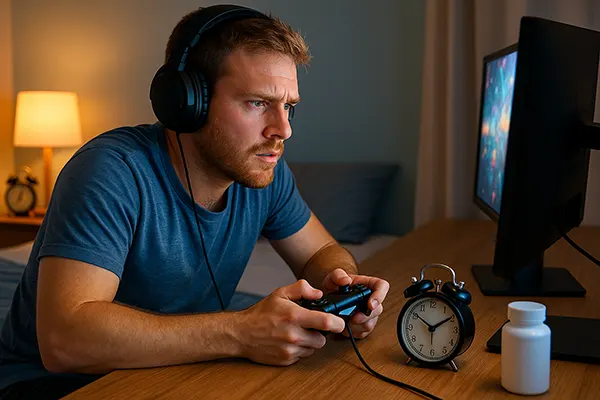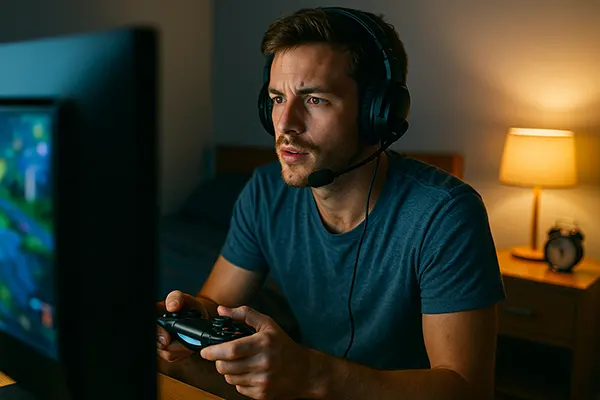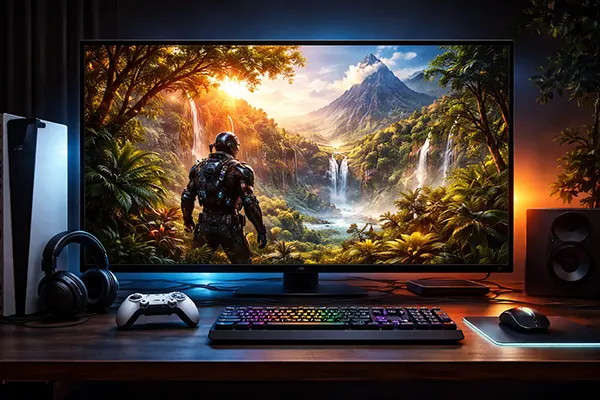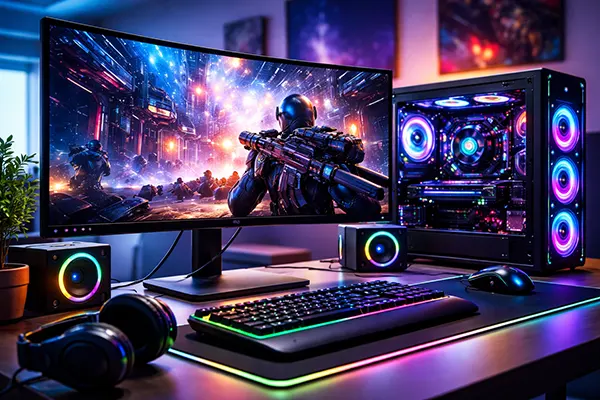
Recent scientific work published between 2023 and 2025 offers a clearer understanding of how gaming shapes sleep quality, cognitive performance, and motivation. Modern studies now examine not only the potential risks but also the measurable benefits linked to different genres and styles of play. This article summarises the latest data and provides practical guidance for maintaining healthy habits while enjoying games.
Research from the Sleep Research Society (2024) shows that high-intensity genres, such as competitive shooters and fast-paced action titles, tend to increase physiological arousal shortly before bedtime. Elevated heart rate and delayed melatonin release can lead to difficulty falling asleep, especially when gameplay continues past late evening hours.
Role-playing games and narrative adventures often have a different impact. Studies from several European universities (2023–2025) indicate that slower, story-driven titles may cause less pre-sleep stimulation, but long play sessions still prolong wakefulness by shifting attention away from natural tiredness signals. This effect can accumulate over time and reduce overall sleep duration.
Puzzle, strategy, and relaxation-focused games show mixed outcomes. Some players report improved mood regulation after moderate play, which supports better sleep, while others experience excessive mental engagement that delays sleep onset. Researchers emphasise that the timing of play is usually more important than the genre itself.
Several peer-reviewed studies published in 2024 confirm that screen exposure late at night remains a key factor influencing circadian rhythm disruption. Blue light suppresses melatonin production, and rapid in-game decision-making reinforces alertness when the brain should be winding down.
However, controlled trials performed in 2025 suggest that using night-mode features and limiting sessions to under one hour in the evening significantly reduces negative effects. These findings show that gamers can maintain healthy sleep patterns when they adjust the intensity and duration of their evening activity.
Experts also highlight that individual sensitivity varies. Players with high stress levels or irregular schedules are more likely to experience disturbed sleep, while those with consistent daily routines recover faster from late gaming sessions.
Cognitive psychology research in 2024–2025 has demonstrated that specific game types can enhance selective attention, visual accuracy, and decision-making speed. Action games, in particular, have been associated with improved reaction time and spatial awareness in controlled laboratory environments.
Long-term studies following players for twelve months or more show that strategy and puzzle genres support problem-solving skills and planning ability. These improvements are measurable, although the magnitude depends heavily on the intensity and frequency of play rather than the genre alone.
Nevertheless, scientists emphasise that cognitive benefits do not compensate for unhealthy habits. If excessive hours reduce sleep or increase stress, gains in attention or memory can decline. Balanced schedules consistently deliver the strongest cognitive outcomes.
Neuroscience groups analysing brain-imaging data in 2023–2025 observed strengthened neural pathways related to sustained attention in players who engage in moderate gaming. Improvements are generally stable when sessions remain within healthy time limits.
Research also notes changes in motivation. Reward systems in games stimulate dopamine release, which can reinforce goal-driven behaviour when gaming is balanced with real-life priorities. Excessive reliance on in-game rewards, however, may reduce motivation for offline tasks.
Studies confirm that structured gaming habits—such as setting fixed play times and prioritising rest—help maintain positive motivational patterns. This reduces the likelihood of dependency on continuous digital stimulation.

Positive outcomes include enhanced hand-eye coordination, faster information processing, and improved stress reduction for many players. Cooperative online games also support social bonds and communication skills when interactions remain respectful and supportive.
Negative outcomes usually arise from long, uninterrupted sessions. These include eye strain, decreased physical activity, late sleeping hours, and increased irritability. Researchers stress that the problem is rarely the game itself but the absence of boundaries around playtime.
Another risk involves motivational imbalance. When players prioritise gaming over rest or important responsibilities, long-term wellbeing can decline. Scientific reviews from 2025 emphasise the importance of recognising early signs of unhealthy attachment, such as ignoring fatigue or skipping daily routines.
Experts recommend following a structured schedule, with the last gaming session ending at least one hour before bedtime. This allows the brain to transition into a calmer state and helps normalise melatonin production.
Regular breaks every 45–60 minutes reduce eye strain and muscle tension. Standing, stretching, or walking briefly keeps blood circulation stable and supports long-term physical comfort, especially during long sessions.
Maintaining balance between gaming and other daily activities is essential. Setting personal limits, using device time-tracking tools, and monitoring sleep quality help players enjoy games without compromising their health.

High Dynamic Range has been part of gaming for years, …

Gaming monitor spec sheets are full of numbers that sound …